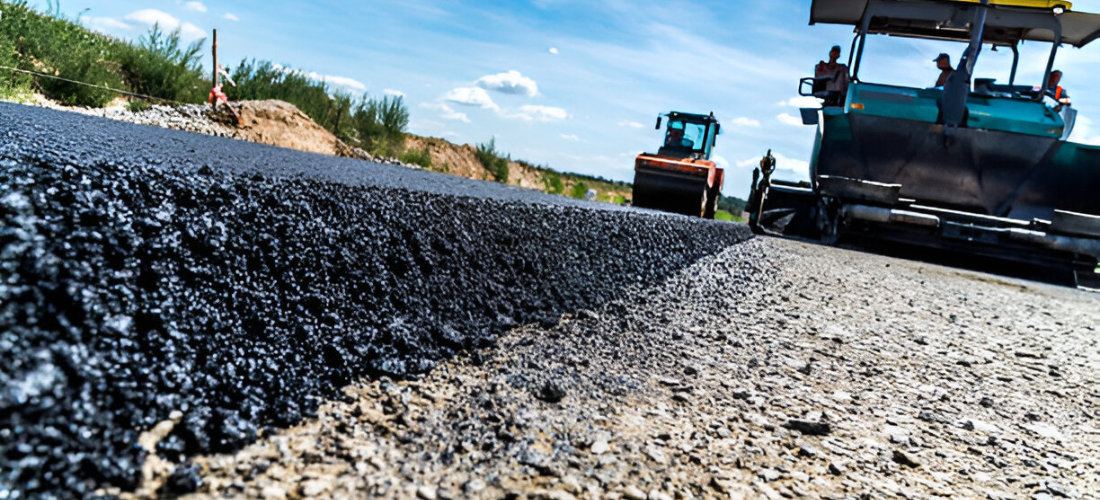Bitumen has been a cornerstone in road construction for decades, valued for its
durability, flexibility, and cost-effectiveness. However, as demands on infrastructure
increase and environmental concerns grow, the road construction industry has been
innovating to improve bitumen-based technologies. These advancements not only
enhance the performance and longevity of roads but also address sustainability and
efficiency concerns. In this blog, we delve into the latest advancements in bitumen
road construction technologies and their impact on modern infrastructure.
Warm Mix Asphalt (WMA)
Warm Mix Asphalt (WMA) is a significant innovation in bitumen road construction.
Unlike traditional hot mix asphalt, which requires high temperatures for mixing and
laying, WMA can be produced and applied at lower temperatures. This technology
offers several advantages:
- Reduced Energy Consumption:
Lower production temperatures mean less energy is required, resulting in reduced
fuel consumption and lower greenhouse gas emissions. - Improved Workability:
WMA remains workable at lower temperatures, which can extend the paving
season, particularly in colder climates, and allow for longer hauling distances. - Enhanced Worker Safety:
The reduced temperatures also create a safer working environment by lowering
the risk of burns and exposure to fumes.
Reclaimed Asphalt Pavement (RAP)
Reclaimed Asphalt Pavement (RAP) is an environmentally friendly approach that
involves recycling existing asphalt pavement materials for new construction. The use
of RAP in bitumen road construction has multiple benefits: - Resource Conservation:
By reusing existing materials, the demand for new raw materials is reduced,
conserving natural resources. - Cost Savings:
Incorporating RAP can significantly lower construction costs by reducing the need
for new bitumen and aggregates. - Environmental Impact:
Recycling asphalt pavement reduces landfill waste and the environmental footprint
of road construction projects.
Polymer-Modified Bitumen (PMB)
Polymer-Modified Bitumen (PMB) enhances the properties of traditional bitumen by
adding polymers, which improve the material’s elasticity, strength, and resistance to
deformation. This results in: - Increased Durability:
PMB provides better resistance to cracking, rutting, and thermal stress, extending
the lifespan of road surfaces. - Enhanced Performance:
Roads constructed with PMB can better withstand heavy traffic loads and extreme
weather conditions, making them ideal for highways and urban areas. - Cost Efficiency:
While initially more expensive, PMB’s longevity reduces the frequency and cost of
maintenance and repairs over time.
Nano-Technology in Bitumen
The incorporation of nano-technology in bitumen has opened new avenues for
enhancing road performance. Nano-materials can improve the mechanical properties
of bitumen, leading to: - Superior Durability:
Nano-additives can enhance the fatigue resistance and tensile strength of bitumen,
resulting in more durable road surfaces. - Improved Temperature Sensitivity:
Nano-modified bitumen exhibits better performance across a wide range of
temperatures, reducing issues like rutting in hot weather and cracking in cold
weather. - Environmental Benefits:
The improved efficiency and performance of nano-modified bitumen can lead to
longer-lasting roads, thereby reducing the environmental impact of frequent repairs
and maintenance.
Self-Healing Asphalt
Self-healing asphalt is an emerging technology designed to extend the lifespan of
roads by enabling them to repair minor damages autonomously. This technology
utilizes various methods, such as:
- Microcapsules:
Incorporating microcapsules filled with rejuvenating agents into the asphalt mix.
When cracks form, these capsules break open and release the agents, repairing the
damage. - Induction Heating:
Embedding steel fibers in the asphalt, which can be heated using an induction
heater to melt and rebind the bitumen, sealing cracks. - Extended Road Life:
Self-healing asphalt can significantly reduce maintenance costs and extend the
functional life of road surfaces.
Sustainable Bitumen Alternatives
The quest for more sustainable construction practices has led to the development of
alternative bitumen sources, such as bio-based bitumen derived from renewable
resources like algae, waste cooking oil, and lignin. These alternatives aim to: - Reduce Dependency on Fossil Fuels:
By using renewable resources, sustainable bitumen alternatives decrease reliance
on petroleum-based products. - Lower Carbon Footprint:
The production process of bio-based bitumen typically generates fewer emissions
compared to conventional bitumen production. - Promote Circular Economy:
Utilizing waste products and renewable materials supports the principles of a
circular economy, promoting resource efficiency and sustainability.
The advancements in bitumen road construction technologies are revolutionizing the
way we build and maintain our roads. From energy-efficient Warm Mix Asphalt and
recycled Reclaimed Asphalt Pavement to the enhanced durability of Polymer-
Modified Bitumen and the innovative potential of nano-technology and self-healing
asphalt, these innovations are addressing both performance and environmental
challenges. As we continue to seek sustainable and efficient infrastructure solutions,
the ongoing development and adoption of these cutting-edge technologies will play a
crucial role in shaping the future of road construction. By embracing these
advancements, we can build roads that are not only more durable and safer but also
more environmentally responsible.

